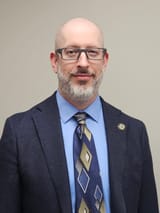Leading with Integrity
How to Address Past Mistakes While Coaching Others

Mistakes are an integral part of life, both personally and professionally. What distinguishes those who thrive from those who stagnate is their ability to recognize these mistakes, learn from them, and evolve. As Richard Feynman* wisely said, "You are under no obligation to remain the same person you were a year ago, a month ago, or even a day ago. You are here to create yourself, continuously." This profound quote encapsulates the essence of self-improvement—acknowledging that growth is not only possible but necessary for personal and professional development.
However, addressing mistakes in a leadership role can be complex. How do you lead others when you yourself have made similar mistakes in the past? What happens when an employee whom you're trying to coach brings up your previous errors to justify their own behavior? This situation challenges your leadership ability and highlights the importance of vulnerability, integrity, and adaptability.
When you step into a leadership role, your past experiences—both positive and negative—become valuable teaching tools. Sharing stories of your past mistakes can help your team members avoid similar errors, providing them with a significant learning opportunity. But what happens when these very mistakes resurface in the form of a challenge?
Imagine you're coaching an employee who's made a similar mistake. As you coach them on correcting the behavior, they point out your previous misstep as a justification for continuing their actions. They might say, "But you did the same thing when you were in my position."
In moments like these, it's easy to feel defensive or trapped. However, this is a powerful opportunity to demonstrate growth and integrity. Acknowledging your past mistakes openly while emphasizing the importance of learning from them not only strengthens your credibility but also models the growth you expect from your team.
Acknowledging the Past Without Allowing It to Define You
When an employee points out your past mistake, their argument often boils down to, "If you made this mistake and continued on, why shouldn't I be allowed the same leeway?" The truth is that making a mistake does not justify repeating it. As a leader, it's essential to frame the situation to highlight your growth rather than your flaws. Here's how you might respond:
Own Your Mistake: Start by acknowledging the error you made in the past. Say something like, "You're right. I did make that mistake when I was in your position, and I understand where you're coming from."
Explain the Lesson Learned: After admitting the mistake, emphasize how you grew from that experience. "However, looking back, I realized that continuing that behavior only hindered my growth and the team's success. I've learned a better way, and that's what I'm trying to share with you."
Redirect the Focus: Shift the conversation toward the future. "This isn't about repeating mistakes but learning from them so that you, too, can grow in your role and avoid setbacks I faced."
By reframing the conversation, you position yourself as a role model who has turned past mistakes into learning experiences. This approach underscores the difference between making a mistake and learning from it, showing your team that improvement is possible if they are open to feedback.
Continuous Growth: A Core Principle of Leadership
Feynman's quote reminds us that growth is a continuous journey. Whether you're a supervisor or an employee, none of us is bound by the mistakes of the past. Instead, we are defined by how we respond to those mistakes and use them to build a better version of ourselves.
As a leader, embracing this mindset is crucial. The goal isn't to be flawless but to be adaptable and open to growth. When employees see that you're committed to becoming a better leader and person each day, they are more likely to adopt the same mentality. Here are a few ways to foster this growth-oriented environment:
Encourage Reflection: After making a mistake, reflect on what went wrong, what was learned, and how similar situations can be avoided. Encourage your team to do the same.
Promote Open Dialogue: Foster a culture where mistakes are openly discussed without fear of judgment. This reduces defensiveness and creates a safe space for growth.
Lead by Example: Show your team that you're committed to self-improvement by continually seeking feedback, admitting your own errors, and demonstrating how you've learned from them.
Highlight Accountability: Remind your team that while mistakes are learning opportunities, they don't absolve someone from responsibility. Accountability is vital; it's a cornerstone of long-term success.
Letting Go of the Old You
We all tend to cling to who we are because it feels comfortable. But as Feynman suggests, we are not obliged to remain static. Each day presents a chance to become someone new, someone better. As a leader, embodying this principle is crucial. It's not just about coaching others but also constantly evolving yourself.
When an employee tries to justify their mistake by pointing to their past, it's a reminder of the journey they've been on. You can show them that mistakes are stepping stones, not roadblocks, in the process of personal and professional growth. Just because you were once flawed doesn't mean you need to continue being that person—or allow others to use your past to justify their present actions.
In the end, leadership is about transformation—both your own and that of your team. By embracing continuous growth and showing that mistakes, when properly addressed, are powerful opportunities for learning, you create an environment where everyone is inspired to be the best version of themselves. In doing so, you not only become a better leader but also a better person.
Embracing Feynman's message of continuous self-improvement helps us better understand that while mistakes are inevitable, remaining the same is not. As a leader, let your past mistakes become a testament to your ability to evolve, inspiring those around you to do the same.
*Richard Feynman was an influential American theoretical physicist known for his contributions to quantum mechanics and quantum electrodynamics, earning him the Nobel Prize in Physics in 1965. He was also a renowned educator, author, and thinker, celebrated for his ability to explain complex scientific concepts with clarity and curiosity.




